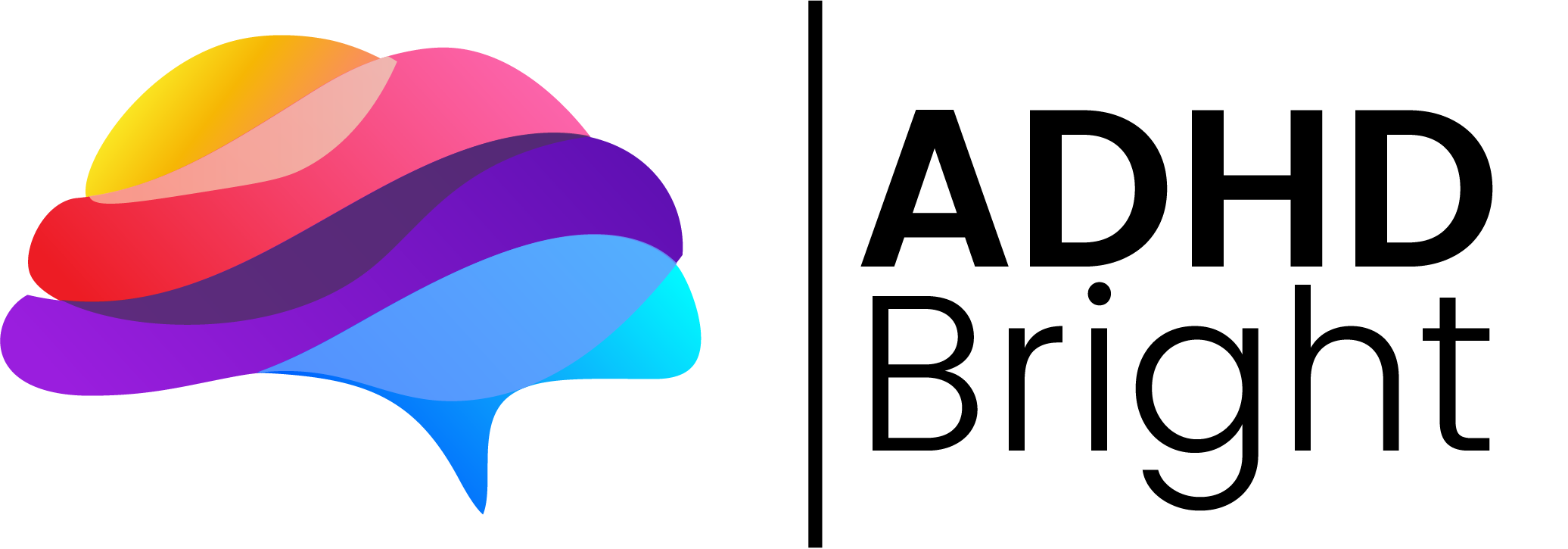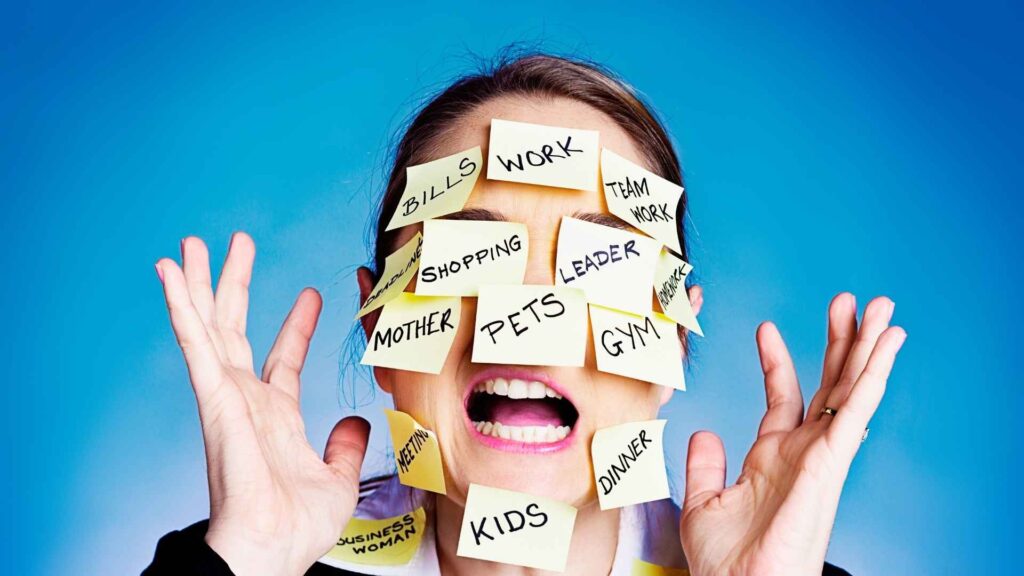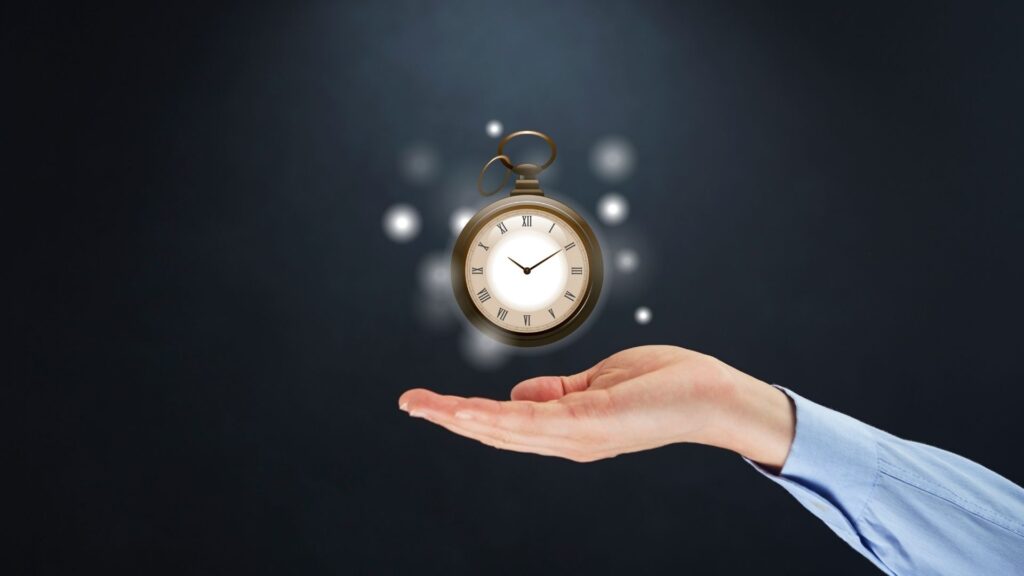If you’ve ever asked yourself “do I have ADHD or am I just lazy,” you’re not alone. Many people with ADHD grow up hearing words like “unmotivated,” “careless,” or “lazy.” But what looks like laziness from the outside is often executive dysfunction — the brain’s struggle to start, plan, or finish tasks.
So before labeling yourself harshly, it’s important to understand that attention deficit hyperactivity disorder (ADHD) is a real neurodevelopmental disorder that affects how the prefrontal cortex manages focus, memory, and motivation. Recognizing this difference can have a profound impact on your mental health and emotional well being.
How to Know if It’s ADHD or Just Laziness
“Lazy people” make a conscious decision not to act, even when they can. ADHD, on the other hand, limits a person’s ability to act despite wanting to. The ADHD brain struggles with motivation not because of willpower, but because of blood flow and neurotransmitter differences in the prefrontal cortex — the part of the brain responsible for time management, emotional regulation, and executive function.
So the question “do I have ADHD or am I just lazy” isn’t about effort. It’s about understanding why effort feels so hard.
Self-Evaluation Checklist: Do These ADHD Patterns Sound Familiar?
While only a mental health professional can give an accurate diagnosis, you can use this checklist to see if your struggles align with common ADHD symptoms.
If you recognize several of these, it might be worth discussing an ADHD diagnosis with a healthcare provider or mental health professional.

Difficulty Starting Tasks
You know what to do but can’t seem to begin. This is classic executive dysfunction, not a lack of effort. You might overthink, freeze, or avoid starting until the pressure feels unbearable.
➡ Read: ADHD Task Initiation: How to Start When You Feel Stuck
Trouble Staying Focused
You lose track of time or forget what you were doing mid-task. Difficulty concentrating and short sustained attention are hallmark ADHD symptoms.
Forgetfulness and Disorganization
You misplace items, forget deadlines, or lose focus mid-conversation. These executive function challenges make daily functioning unpredictable and can contribute to low self esteem.
Emotional Rollercoasters
You experience big emotions, mood swings, and frustration over small things. This reflects challenges with emotional regulation, not poor character.
Hyperfocus on One Thing
Ironically, people with ADHD can also hyperfocus — diving into one project for hours while ignoring everything else. This imbalance is part of managing ADHD symptoms, not being irresponsible.
Chronic Procrastination and Missed Deadlines
You often procrastinate until panic kicks in. That’s the ADHD brain chasing dopamine, not a lazy habit.
➡ Read:ADHD Procrastination: Why You Avoid Tasks and What to Do
Low Motivation or Energy
You feel drained before you even start. Low motivation in ADHD is neurological — linked to dopamine signaling and mental fatigue, not laziness.
Overwhelm with Large Tasks
Breaking things into steps feels impossible. This can lead to avoidance and guilt, but it’s really about executive dysfunction, not laziness.
Impulsive Actions or Speech
You might speak before thinking or struggle to control impulses, especially if you experience hyperactivity or have hyperactive impulsive ADHD.
Lifelong Struggles with Time, Focus, and Follow-Through
You may have faced these issues since childhood. That’s because ADHD is a neurodevelopmental disorder, not a phase or habit.
If these descriptions feel familiar, it doesn’t mean you’re broken. It might mean you have ADHD — and that’s something you can understand and manage with support.
Why ADHDers Aren’t Lazy
Let’s be clear: ADHD and laziness are not the same. ADHD laziness is a myth created by misunderstanding how the brain works.
ADHD affects the prefrontal cortex, where executive function happens — the mental system that helps you plan, prioritize, and complete tasks. When this region has reduced blood flow or dopamine activity, it becomes harder to initiate or sustain motivation. That’s not choice — it’s neurology.
This is why people with ADHD may look unmotivated when they’re actually overwhelmed, distracted, or mentally exhausted. The same neurological challenges that make focus difficult also make shame easy to internalize.
ADHD is not a mental disorder of laziness — it’s a neurodevelopmental disorder that contributes heavily to struggles with time management, organization tools, and task completion.
How to Manage ADHD and Rebuild Motivation
The good news is that ADHD treatment and lifestyle changes can make a real difference. Managing ADHD is not about trying harder — it’s about using strategies that work with your brain.
Here are some effective approaches backed by mental health professionals and research in clinical psychology and therapeutic modalities:
Build External Structure and ADHD-Friendly Systems
The first step in managing ADHD is creating structure outside your head. The ADHD brain struggles with working memory and executive dysfunction, so keeping everything inside your mind only increases stress. External systems give your thoughts a home — a place to see your day clearly and complete tasks without feeling overwhelmed.
Try experimenting with different organization tools: digital planners, calendars, visual dashboards, or paper checklists. The goal isn’t perfection — it’s consistency. External structure turns intentions into visible steps and removes the mental friction of remembering everything.
If you’re not sure what kind of system will actually work for your brain, read our guide on How to Choose the Best Planner for ADHD. It explains how different planning styles support time management, task completion, and motivation depending on your focus patterns.
Once you find a structure that fits, it becomes your external brain — a safe place for your ideas, reminders, and priorities. This is the foundation of sustainable ADHD management and one of the most powerful ways to replace overwhelm with calm progress.
ADHD Coaching and Therapy
Working with a mental health professional can help you develop strategies for managing ADHD symptoms. Cognitive behavioral therapy (CBT) focuses on restructuring unhelpful thought patterns, while dialectical behavior therapy (DBT) helps with emotional regulation and impulse control.
ADHD Medication and Healthcare Support
If you pursue ADHD treatment, a healthcare provider can discuss medication management options to regulate dopamine and improve day to day functioning. This can help you focus, plan, and complete tasks more consistently.
Lifestyle Changes That Support Focus
Small lifestyle changes—regular sleep, movement, protein-rich meals, and mindfulness practices—can drastically improve mental health and personal growth. They also help stabilize mood disorders and mental fatigue.
Build Compassion and Realistic Expectations
Healing begins with compassionate care for yourself. You’re not “lazy typically”; you’re someone navigating real neurological challenges. Self-criticism slows progress, while understanding your mental well being builds resilience.
When to Seek Professional Help
If you relate to several checklist items, consider meeting with a mental health professional for an accurate diagnosis. They can screen for attention deficit hyperactivity disorder, attention deficit disorder, or other mental health disorders such as bipolar disorder, obsessive compulsive disorder, or mood disorders that share similar symptoms.
Finding the right mental health professional ensures you receive personalized care and effective treatment tailored to your needs.
Remember, getting help isn’t weakness — it’s a crucial step toward stability, confidence, and emotional well being.
Final Thoughts: A Kinder Way to See Yourself
If you’ve ever asked yourself “do I have ADHD or am I just lazy,” know this: laziness is a choice, ADHD is not. The adhd brain works differently, and understanding that difference can transform your mental health and daily life.
ADHD doesn’t mean you lack drive or discipline — it means your brain needs a different kind of support to manage ADHD, complete tasks, and thrive. With the right mix of therapy, organization tools, lifestyle changes, and professional support, you can build structure that fuels success, not shame.
You’re not lazy. You’re learning how to work with your brain — and that’s the bravest thing you can do.




